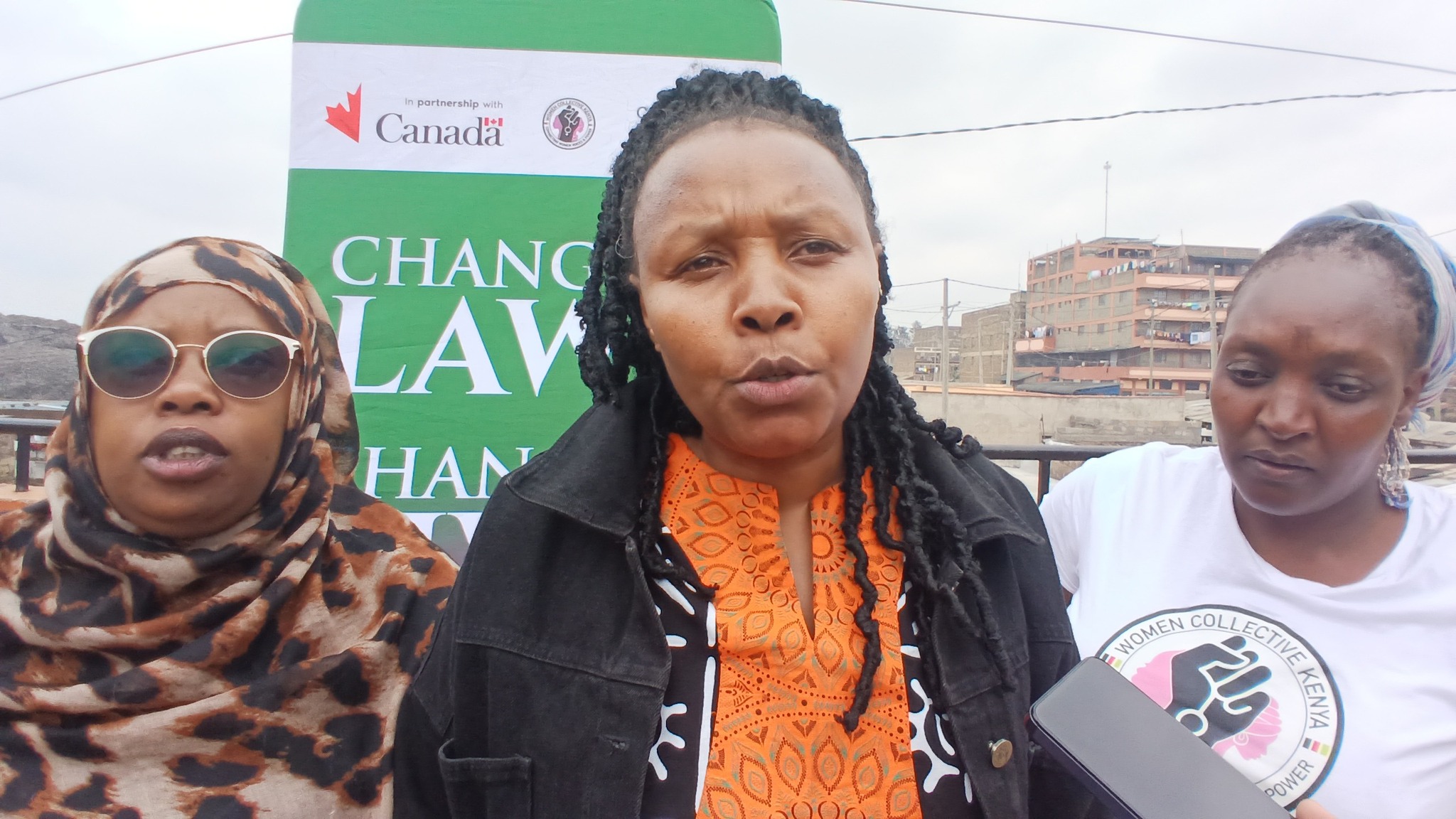 Women Collective Kenya (WCK) director Ruth Mumbi (c) addressing the press during the International Safe Abortion Day commemoration at Ayeira Initiative in Korogocho (Ngomongo), Nairobi county on September 28, 2025./GEORGE OWITI
Women Collective Kenya (WCK) director Ruth Mumbi (c) addressing the press during the International Safe Abortion Day commemoration at Ayeira Initiative in Korogocho (Ngomongo), Nairobi county on September 28, 2025./GEORGE OWITIHuman rights lobby groups have called on President William Ruto’s administration to decriminalize safe abortion in Kenya, citing rising numbers of unsafe procedures and maternal deaths.
The African Civil Society Organizations, including the Centre for Reproductive Rights, SUPERB, FIDA Kenya, Women Collective Kenya, Women’s Probono Initiative, Reproductive Health Network Kenya and Health Development Initiative, issued the call during this year’s International Safe Abortion Day on Sunday.
Other signatories included the Women’s Global Network for Reproductive Rights, Network for Community Development, Nyale Institute, Medicines Research and Access Platform and WLSA for Equality.
“We, the undersigned Civil Society Organizations committed to advancing Sexual and Reproductive Health and Rights (SRHR) across Africa, come together to commemorate International Safe Abortion Day 2025 under the theme Safe Abortion is Life-saving Healthcare!” the groups said in a joint statement.
The event was marked in Nairobi, Kiambu, Kajiado, Migori and Kisumu counties on September 28.
The organisations noted that 8.3 million women and girls in Africa undergo unsafe abortions each year, making it one of the leading causes of maternal mortality.
They warned that adolescents, women living with disabilities, those in rural and underserved communities, people in conflict situations and survivors of sexual violence are most affected.
They also pointed to the Maputo Protocol, which explicitly recognises abortion as a right in cases of sexual assault, rape, incest, or when pregnancy endangers the health or life of the woman or the foetus.
Speaking at a Nairobi commemoration held at the Ayeira Initiative in Korogocho, Women Collective Kenya director Ruth Mumbi said restrictive laws continue to push women into unsafe practices.
“Several women initially resort to unsafe methods such as ingesting harmful substances or using sharp objects before turning to medical abortion using pills obtained from pharmacists and chemists. The sequence often leads to complications,” she said.
Mumbi noted that unsafe abortion leads to severe maternal outcomes including death, coma and life-threatening complications.
She added that despite the provisions of Article 26 of the Constitution, blanket criminalisation has created uncertainty among healthcare providers, making them reluctant to perform abortions even in emergencies.
“This legal, policy and administrative environment has driven many women and girls into unsafe abortions with devastating consequences to their health and well-being,” she said.
The groups urged both the national and county governments to urgently remove barriers that limit who can provide abortion care and at what levels of health facilities.
They also called for action against stigma through accurate information, education and provision of essential services.
“We call on the government, including counties, to take measures to eliminate abortion stigma through provision of accurate information and education on safe abortion care, essential services and availability,” Mumbi said.
Recent research underscores the scale of the problem. A 2023 study by the African Population and Health Research Center (APHRC), the Ministry of Health, and the Guttmacher Institute found Kenya recorded about 792,694 induced abortions that year.
This translated to a national abortion rate of 53.3 per 1,000 women of reproductive age, up from 48.0 per 1,000 in 2012.
The same study reported a national unintended pregnancy rate of 103.8 per 1,000 women of reproductive age, with more than half (55.2 percent) ending in induced abortion.
More than 304,000 women sought post-abortion care in 2023, according to the report.















